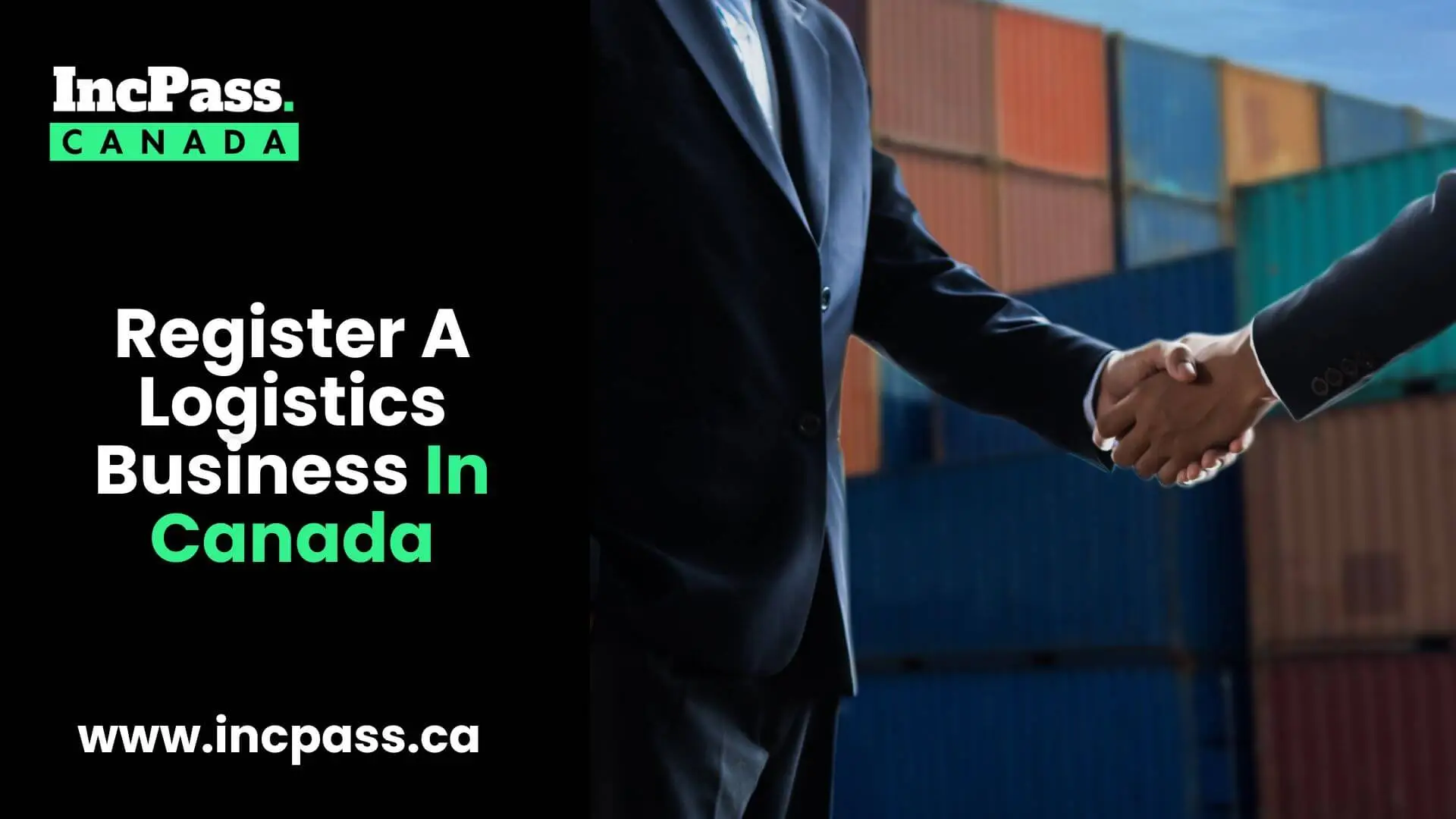In the modern, globalized world, the logistics sector is essential to the efficient exchange of commodities and services. Businesses of all sizes depend on logistics companies to handle their supply chains effectively, from transportation to warehousing.
If you’re considering starting a logistics business in Canada, you’re on the right track towards tapping into a lucrative market with ample opportunities for growth and success.
What is a Logistics Business?
A logistics business encompasses a range of activities involved in the movement and storage of goods. This includes transportation, warehousing, inventory management, packaging, and distribution. Logistics organizations optimize the supply chain for enterprises in a variety of industries by making sure that goods are delivered to the right place, at the right time, and in the appropriate condition.
Types of Logistics Business in Canada
Logistics encompasses a huge variety of services, including transportation, warehousing, distribution, and freight forwarding.
Here are some common types of logistics businesses you can start in Canada:
- Freight Brokerage: Facilitating transactions between shippers and carriers.
- Third-Party Logistics (3PL) Providers: Offering integrated logistics solutions, like warehousing, transportation, as well as supply chain management.
- Courier and Delivery Services: Providing fast and reliable delivery of goods to customers.
- Freight Forwarding: Coordinating the transportation of goods across borders, including customs clearance as well as documentation.
- Warehousing and Distribution: Storing and managing inventory for businesses.
Procedure to Register a logistics business in Canada
Here’s a breakdown of the key steps to registering your logistics business in Canada:
Choose a Business Structure:
You must choose the type of company in Canada. Decide on a sole proprietorship, partnership, or corporation, each with its own advantages and limitations.
Register Your Business Name
Make sure your chosen name adheres to provincial regulations and conduct a NUANS name search to ensure availability.
Obtain a Business Number
This unique identifier is required for tax purposes and registering for GST/HST (Goods and Services Tax/Harmonized Sales Tax).
Apply for Provincial Business Licenses and Permits
Investigate your unique needs as requirements differ by province.
Set up a Corporate Bank Account
You must create a business bank account in Canada to separate business finances from personal accounts for clear record-keeping and tax purposes.
Obtain Business Insurance
Invest in comprehensive insurance coverage to shield your company from any liabilities.
Advantages of Starting a Logistics Company in Canada
- Global Market Access: Canada has easy access to worldwide markets thanks to its trade agreements and advantageous location.
- Advanced Infrastructure: The efficient flow of commodities is made possible by modern transportation networks, which include ports, railroads, and highways.
- Skilled Workforce: Canada boasts an exceptionally well-educated and talented workforce, essential for managing complex logistics operations.
- Supportive Business Environment: Government incentives, such as tax credits and grants, encourage investment in the logistics sector.
- Sustainable Growth Opportunities: The Canadian logistics sector is expected to have steady expansion due to the rising need for supply chain optimization and e-commerce.
Mistakes to Avoid While Starting a Logistics Business in Canada
- Neglecting Regulatory Compliance: Make sure that all license requirements, safety standards, and transportation restrictions are followed.
- Underestimating Market Research: To determine target consumers, rivals, and market trends, carry out in-depth market research.
- Ignoring Technology: Adopt technological methods to track customers, manage inventories, and optimize routes.
- Overlooking Insurance Needs: To safeguard your company from obligations and unanticipated dangers, get enough insurance coverage.
- Inadequate Financial Planning: To efficiently manage costs, cash flow, and profitability, create a thorough business plan and budget.
Conclusion
Establishing a logistics company in Canada presents countless chances for expansion and prosperity. Through a combination of innovation, embracing Canada’s strategic advantages, and steering clear of common traps, entrepreneurs may create profitable logistics businesses that support the nation’s economic growth. Registering a logistics firm in Canada is now simpler than ever due to IncPass. IncPass offers automated solutions for business registration, GST/HST registration, virtual office space, and more, saving you time and hassle. Register your business with Incpass today.
FAQs
What legal prerequisites must a logistics company meet in order to register in Canada?
In order to register a logistics company in Canada, you must select a business structure, get the required licenses and permissions, file taxes, and adhere to legal regulations.
How much time does it take to register a logistics firm in Canada using IncPass?
With IncPass, the registration process can be completed online within days, saving you time and effort compared to traditional methods.
Do I need a physical office to register a logistics business in Canada?
No, you can use virtual office services provided by IncPass to fulfil the legal requirement of having a Canadian address for your business registration.



